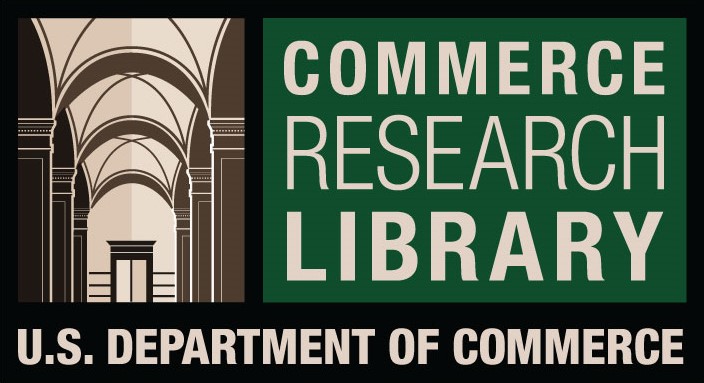The Sovereignty of Cyberspace
DOI:
https://doi.org/10.61841/sx239w49Keywords:
Sovereignty, cyberspace, virtual sovereignty.Abstract
The creation of a virtual world parallel to the material world created a kind of competition for sovereignty, which promoted the idea of a transition to coexistence in these sovereign centers, away from chaos and violence. Recognition of this diversity of sovereignty would lead to the existence of competing forces but in a peaceful and homogeneous manner. The international nature of digital conflicts is certainly a source of difficulty in defining applicable law and jurisdiction. cyberspace has made national boundaries transparent, because inter-network overlaps have made the boundaries intangible. So, it is not surprising that the state loses its legitimacy when it comes to regulatory matters. The contradiction between the geographical and territorial boundaries of national laws and the universality of the Internet led to the loss of the state part of its sovereignty in the area of cyberspace. Limits are not a fixed and unchanging chapter, but they are evolving in place and time and are losing their importance in many areas. Globalization and the existence of a networked world have contributed to building areas where it is difficult to set boundaries accurately.
Downloads
References
1. Al-Essa, Talal, (2010) Sovereignty between its traditional and contemporary concept, "A study of the internationalization of sovereignty in the contemporary era” Al Syada bayn Mafhomha Al Taqlidy Wal
Mo’sir “Drasa fi Mada Tadweel Alsyada fi Al A’sr Alhader”, Damascus University Journal of Economic and Legal Sciences, 26 (1), p. 54.
2. Draft Arab Convention for the Protection of Cyber Space between Reality and Ambition“Mashroo’a Al
Itifaqiya Al Arabiya lihimayt Al Fadaa Al sybrani bayn Al waq’a wal tomoh”, The Arab Center for Legal and Judicial Research, Council of Arab Justice Ministers, League of Arab States, Beirut, 23-25 July
3. Musa, Talib Hasan, Omar, Omar Mahmoud, (2016) The Internet in Law “Internet Qanoonan”, Journal of Sharia and Law, United Arab Emirates University, (27), 333-388 p. 339.
4. Naous, Mustafa, (2012) State Sovereignty in Cyberspace “Siadet Al Dawla fi Al fadaa Al electrony”, Journal of Sharia and Law, College of Law, United Arab Emirates University, Issue 51.
5. Affaire Du Détroit De Corfou (Royaume-Uni C Albanie), CIJ Recueil 1949, 4, 35
6. Affaire Du Lotus (France C/Turquie ° CPIJ Série A, N°10, P.18 (1927).
7. Affaire Fonderie De Trail (United States V Canada) Recueil Des Sentences Arbitrales Internationales, Vol III Pp 1905-1982, 1965 (1941)
8. Affaire Ministère Public De Munich Allemagne Contre Compuserve, Jugement Du 28 Mai 1998 – 8340, Ds 465
9. Arlene H. RINALDI, A., (1995) The Net: User Guidelines And Netiquette, Disponible À L'adresse Suivante: Tim NORTH, « The Internet And Usenet Global Computer Networks: An Investigation Of Their Culture And Its Effects On New Users », < Disponible À Http: Foo.Curtin.Edu.Au/Thesis/Defautt, Html>.
10. Bacot, G. (1985), Carré De Malberg Et L'origine De La Distinction Entre Souveraineté Du Peuple Et Souveraineté Nationale, Paris, Éd. Du C.N.R.S, P. 9.
11. Bellanger, P., De La Souveraineté En Général Et De La Souveraineté Numérique En Particulier, Les Échos, 30 Août 2011 (Archives.Lesechos.Fr/Archives/Cercle/2011/08/30/Cercle_37239.Htm).
12. Benyekhlef, K. & Guy Lefebvre, G., (1993) L'internationalisation Du Droit Et L'affirmation De La Souveraineté: Réflexions Théoriques Et Pratiques, Dans Souveraineté Et Intégration, Montréal, Éd. Thémis..
13. Benyekhlef, K., (2002) L’Internet: Un Reflet De La Concurence Des Souverainetés Lex Electronica, Vol. 8, N°1, Automne 2002, P.6. Http://Www.Lex-Electronica.Org/Articles/V8-1/Benyekhlef.Htm
14. Bouchera, L. (1996) " La Souveraineté Informationnelle: Entre Utopie Et Projet " Le Monde 1er Février 1996
15. Cassini, S., Cloud Souverain, Un Gâchis À La Française, Lesechos.Fr, 24 Février 2015 (Www.Lesechos.Fr/24/02/2015/Lesechos/21884-030-ECH_Cloud-Souverain--Un-Gachis-A-La- Francaise.Htm
16. Colin, N., And Verdier, H., (2014) « Souveraineté Numérique: La Piste Industrielle », Paristechreview.Com, 30 Juin 2014 (Www.Paristechreview. Com/2014/06/30/Souverainete-Numerique).
17. Corn, G. P., & Taylor, R. (2017). Concluding Observations On Sovereignty in Cyberspace. American Journal of International Law Unbound, 111, 282–283. Doi:10.1017/Aju.2017.77
18. Corn, G., & Taylor, R. (2017). Sovereignty in The Age of Cyber. American Journal of International Law Unbound, 111, 207-212. Doi:10.1017/Aju.2017.57
19. Cubertafond, B., (1989), Souverainetés En Crise? Revue De Droit Public Et De Sciences Politiques,
20. Débat Entourant L'adoption Par Le Législateur Américain Du Communications Decency Act of 1996, Codified at 47 U.S.C., Section 223(A) To (H).
21. Détroit De Corfou, Fond, Arrêt, C.I.J. Recueil 1949,
22. Doutriaux, M. Frontières, 2015, Légales Et Souveraineté Dans Le Cyberespace? Chaire Cyber-Défense Et Cyber-Sécurité.
23. Étienne, J., « Google Health, Un Carnet De Santé Personnel En Ligne », Futura-Sciences.Com, 22 Mai 2008 (Www.Futura-Sciences.Com/Sante/Cvactualites/Medecine-Google-Health-Carnet-Sante-Personnelligne- 15600/).
24. Fang, B. (2018) Objective Existence Of Cyberspace Sovereignty In Countries’ Affairs. In: Cyberspace Sovereignty. Springer, Singapore,
25. Ganascia, J., Germain, E., & Kirchner, C., (2018) La Souveraineté À L'ère Du Numérique. Rester Maîtres De Nos Choix Et De Nos Valeurs. CERNA. 2018.
26. GOTLIEB, A., DALFEN, C., & KATZ K., (1974) « The Transborder Transfer of Information by Communications and Computer Systems: Issues and Approaches to Guiding Principles », American Journal of International Law.
27. GUEHAM F., Vers La Souverinete Numerique: Pour Une Nouvelle Gouvernance De L’Internet, 2017, P. 10: Www.Fondapol.Org ›
28. ICC Policy Statement: Cross-Border Law Enforcement Access To Company Data – Current Issues Under Data Protection And Privacy Law » (Février 2012)
29. Institut De La Souveraineté Numérique, « Les Nouveaux Enjeux Européens De La Souveraineté Numérique
», Cahiers De La Souveraineté Numérique, N° 1, 2015 (Www.Souverainetenumerique.Fr/Sites/Default/Files/Cahiers-De-La-Souverainetenumeriquen1.Pdf).
30. Jacques, L., (1996) Cyberspace Et Droit International: Pour UN Nouveau Jus Communications, Revue De La Recherche Juridique–Droit Prospectif, P. 830-832
31. Khanna P. (2018) State Sovereignty And Self-Defence In Cyberspace. Brics Law Journal, 5(4): Pp.139-
154. Https://Doi.Org/10.21684/2412-2343-2018-5-4-139-154
32. Kilovaty, I. (2019). The Elephant in The Room: Coercion. American Journal of International Law Unbound, 113, 87-91. Doi:10.1017/Aju.2019.10
33. Kittichaisaree, K., (2017) Public International Law of Cyberspace, Law, Governance and Technology, Series 32.
34. La Convention De Budapest Du 23 Novembre 2001.
35. La Recherche Juridique- Droit Prospectif, 573; Guy ROCHER, « Pour Une Sociologie Des Ordres Juridiques
36. Les Contours De La Neutralité Du Net En Europe Se Précisent, Lemonde.Fr, 31 Août 2016 (Www.Lemonde.Fr/ Pixels/Article/2016/08/31/Les-Contours-De-La-Neutralite-Du-Net-En-Europe-Se- Precisent_4990450_4408996. Html).
37. Les Nouvelles Règles De L’ue Sur La Protection Des Données Placent Les Citoyens Aux Commandes », Actualité Du Parlement Européen, Europarl.Europa.Eu, 1er Juin 2016: (Www.Europarl.Europa.Eu/News/Fr/Newsroom/20160413BKG22980/Nouvelle-Législation-Européenne- Sur-La-Protection-Des-Données).
38. LIPSCHUTZ, R. Reconstructing World Politics: The Emergence of Global Civil Society, (1992) 21 Millenium. Journal of International Studies, Note 31, 391.
39. MACDONALD, R., (1986), Pour La Reconnaissance D'une Normativité Juridique Implicite Et
«Inférentielle », 28(1) Sociologie Et Sociétés, 47.
40. Melzer, N., (2011) Cyberware Fare and International Law, UNIDIR, Ressources, P.4
41. POST, D., (1995) Anarchy, State, And The Internet: An Essay On Law-Making In Cyberspace, J. Online L. Art.3, Disponible Également À: . L'auteur Y Développe La Théorie De L’exit: (Paragr. 39 Et 40).
42. RUGGIE, J. « Territoriality and Beyond: Problematizing Modernity in International
43. Shen, Y. (2016). Cyber Sovereignty and The Governance of Global Cyberspace. Chinese Political Science Review, 1(1),
44. TGI Paris, Ordonnance Du Référé Du 20 Novembre 2000, Http://Www.Juriscom.Net/Txt/Jurisfr/Cti/Tgiparis20001120.Htm
45. Tribunal De Grande Instance De Paris Ordonnance De Référé 10 Février 2012, Http://Www.Legalis.Net/Spip.Php?
46. Tribunal De Grande Instance De Paris Ordonnance De Référé 28 Novembre 2013,
47. Tsagourias, N., (2018) Law, Borders and The Territorialisation of Cyberspace. Forthcoming, Indonesian Journal of International Law, 2018. Http://Dx.Doi.Org/10.2139/Ssrn.3213511
48. VANDERLINDEN, J., (1993) Vers Une Nouvelle Conception Du Pluralisme Juridique, 2
49. Voir « Les Géants Du Web Menacent-Ils La Souveraineté Des États? », Vidéo Du Forum « Qui Gouverne Internet? », Organisé Par Libération Le 21 Mai 216 (Www.Liberation.Fr/Evenements-Libe/2016/05/21/Les- Geants-Du-Web-Menacent-T-Ils-La-Souverainete-Des-Etats_1454219).
50. Voy: Politique De Sécurité Des Systèmes D’information De l’État-ANSSI Du 17 Juillet 2014
Downloads
Published
Issue
Section
License

This work is licensed under a Creative Commons Attribution 4.0 International License.
You are free to:
- Share — copy and redistribute the material in any medium or format for any purpose, even commercially.
- Adapt — remix, transform, and build upon the material for any purpose, even commercially.
- The licensor cannot revoke these freedoms as long as you follow the license terms.
Under the following terms:
- Attribution — You must give appropriate credit , provide a link to the license, and indicate if changes were made . You may do so in any reasonable manner, but not in any way that suggests the licensor endorses you or your use.
- No additional restrictions — You may not apply legal terms or technological measures that legally restrict others from doing anything the license permits.
Notices:
You do not have to comply with the license for elements of the material in the public domain or where your use is permitted by an applicable exception or limitation .
No warranties are given. The license may not give you all of the permissions necessary for your intended use. For example, other rights such as publicity, privacy, or moral rights may limit how you use the material.









